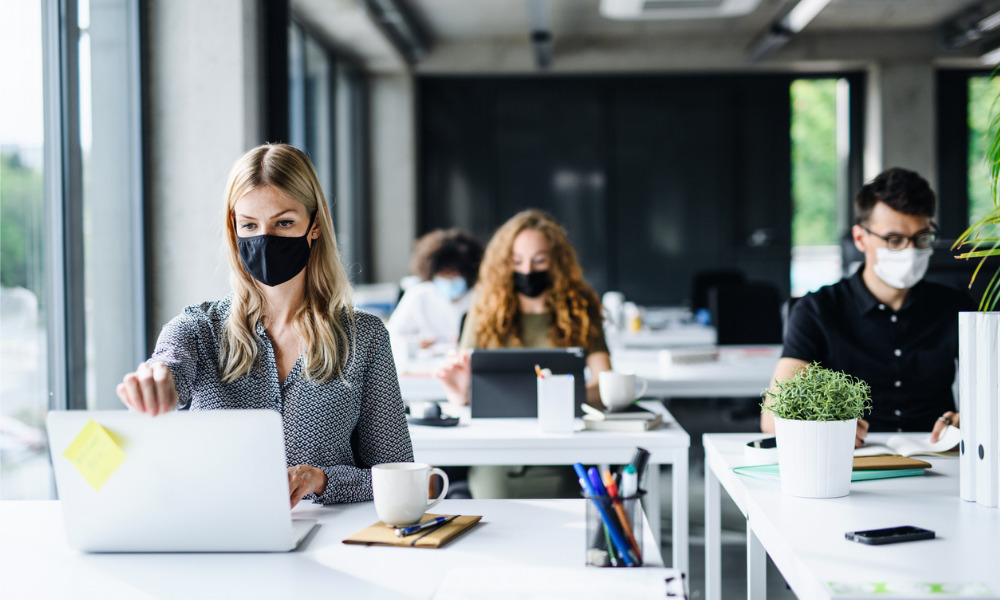
The pandemic is changing employee behaviour

Employers with strong COVID-19 prevention measures are starting to see fewer instances of “presenteeism” among sick workers. Findings of a new study suggest restrictions introduced during the pandemic continue to reshape employee behaviour within the workplace and beyond. That’s because COVID safety measures are gradually becoming part of today’s workplace culture.
From conducting daily health checks to supporting staff members who need to take time off, the routines reportedly prompt workers to be more mindful of their health and behaviour, so much so that the practices are being carried over into their daily lives. Employees who exhibit COVID symptoms are thus less likely to head to public spaces like supermarkets, restaurants or the gym, a study from the Washington State University (WSU) found.
Read more: Worker arrested for stealing COVID vaccination cards
The researchers monitored the experiences of more than 300 working adults across the US to determine the “COVID-19 climate” in their respective workplaces; their views on pandemic safety measures; and whether they went to work or visited public spaces despite having symptoms. The team learned that workplace safety measures influenced both on-site and remote workers.
Not only were employees from health-conscious organisations more likely to adhere to company COVID protocols – they were also found to be more receptive of and more positive towards guidelines from the Centers for Disease Control and Prevention (CDC). “The workplace COVID-19 climate had a direct effect on shaping employee attitudes towards the personal, preventative health actions that the CDC recommends,” said WSU psychology professor Tahira Probst.
Read more: COVID-19 vaccine: How employers can reduce hesitancy among staff
“Public health officials and employers should be aware of the impact that organisations and workplaces can have on stemming the tide of the pandemic,” said Probst, who is also lead author of the study published in the Journal of Occupational and Environmental Medicine. “It’s not just that employers have an impact on transmission that occurs within the workplace, but they are also influencing those same employees’ attitudes and behaviours outside of the workplace.”
“One of the more enduring consequences of the pandemic might be that organisations not only offer more sick leave but also encourage employees to stay home if they’re sick,” Probst said. “Frankly, prior to COVID-19, a lot of our culture has been: ‘unless you’re gravely ill and can’t get out of bed, you should be at work.’ That behaviour spreads diseases and ultimately reduces productivity. We’re hopeful that the pandemic might institute a rethinking of this norm moving forward.”